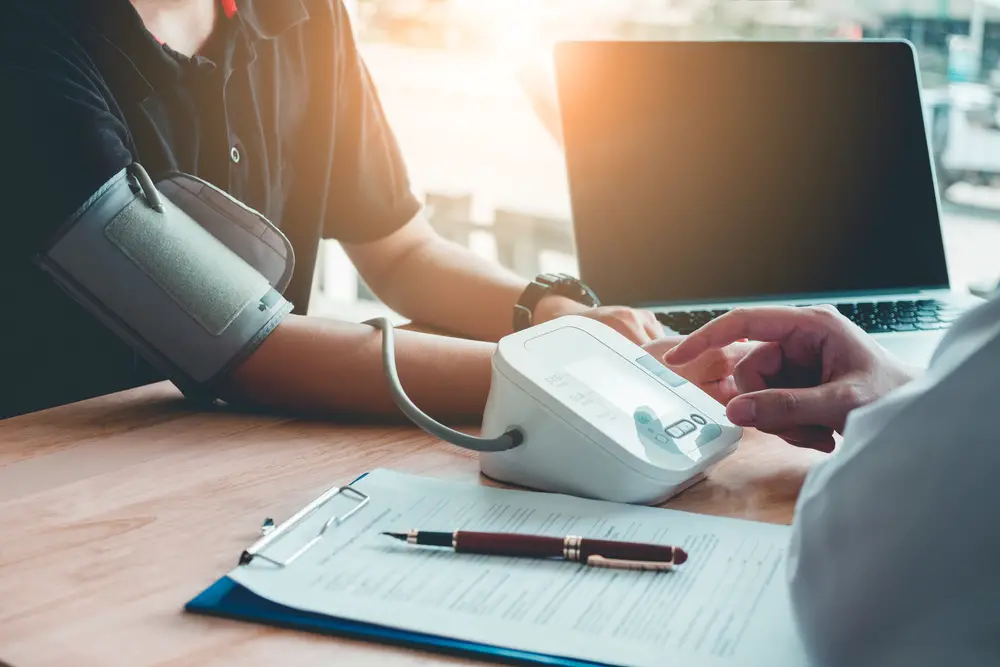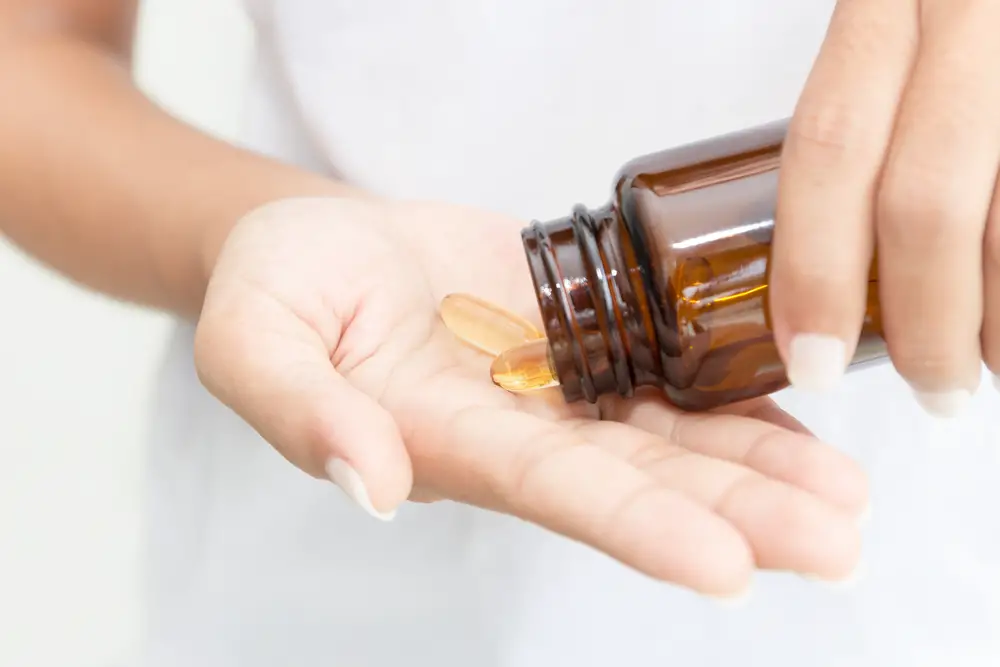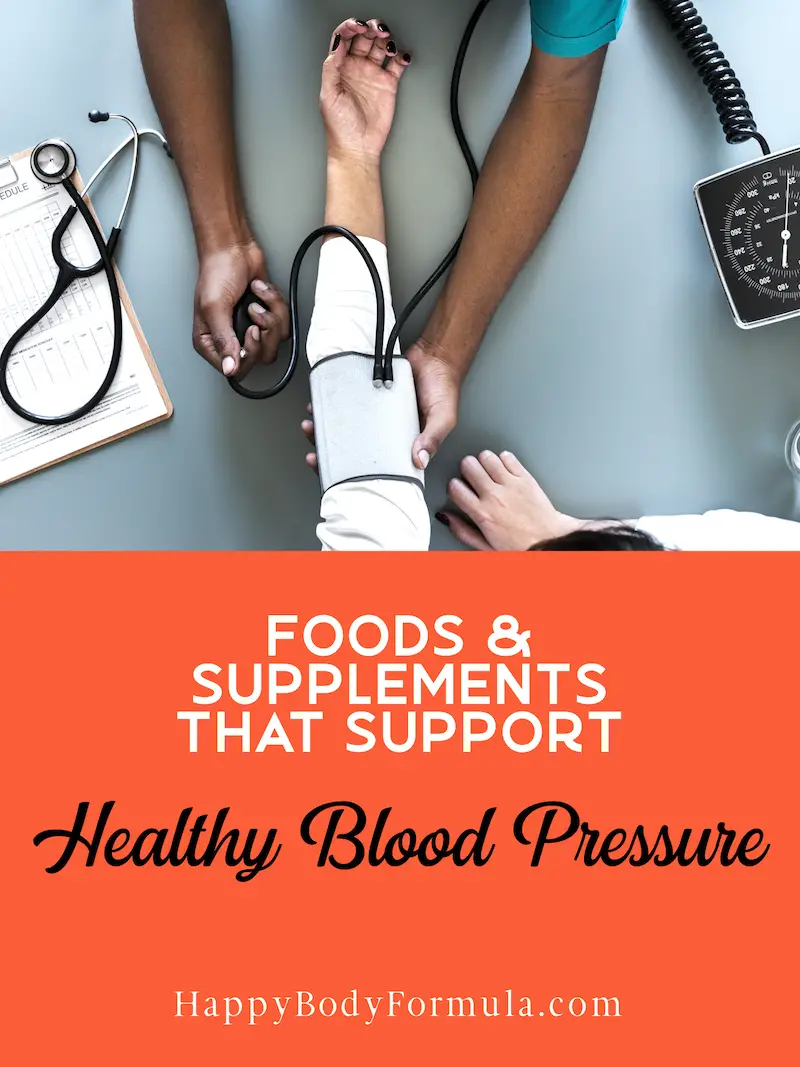
Blood pressure is something that no one thinks about, until it becomes a problem. Having healthy blood pressure is essential for cardiovascular health.
While many factors can influence blood pressure, like genetics or other health aspects, there are many natural ways to naturally lower levels.
This article explores the top research-backed ways to lower high blood pressure.
[toc]
Blood Pressure Basics
Many people never think about or check their blood pressure at home. It is routinely checked in a doctor’s office as part of a yearly physical or wellness exam, or during other appointments that monitor pregnancy and other conditions.
Blood pressure is expressed as two numbers. One is known as the systolic number and the other is diastolic. Simplified, systolic is the top number and diastolic is the bottom number.
Normal blood pressure is considered to be 120/80 mm/Hg, with a normal range of 90 to 120 for systolic and 60 to 80 for diastolic.
Systolic blood pressure is the measurement of the pressure in the arteries during the heart’s contraction. Diastolic blood pressure is the measurement of pressure in the heart between beats.
Blood pressure readings that are higher than 120/80 mm/Hg, for either number or both, is indicative of elevated blood pressure.
Hypertension, or the diagnosis of high blood pressure, comes in two stages. Stage 1 hypertension is when blood pressure is between 130 to 139 for the top number and/or 81 to 89 for the bottom number.
Stage 2 is diagnosed when blood pressure reads more than 140 for the top number and/or more than 90 for the bottom number. It is considered a medical emergency if blood pressure ever reads at 180/120 mm/Hg or higher.
A randomly elevated reading is not true high blood pressure. Momentary stress or other situations can temporarily raise blood pressure. When it consistently falls into these ranges, hypertension will be diagnosed and treatments or lifestyle changes will be suggested by your doctor.
High blood pressure or hypertension can happen for many reasons, including:
- Genetics or family history
- Diet
- Lack of exercise
- Smoking
- Frequent alcohol consumption
- Obesity
- High stress
It’s important to make lifestyle adjustments to support blood pressure if you numbers are elevated or if you have been diagnosed with hypertension.
Fortunately, there are many natural ways to support healthy blood pressure, including dietary changes, supplements, and other lifestyle adjustments like stress management and exercise.
8 Foods That Naturally Lower Blood Pressure
These foods aren’t a magic fix, but they’ve been shown by research to naturally support lower blood pressure levels when included regularly as a part of a healthy diet.
1. Red Beets
Red beets are a potent detox food that supports liver health, and they’re also great for healthy blood pressure. They’re rich in nitric oxide which helps to dilate blood vessels and decrease the pressure in them.
Beets can be steamed or roasted, eaten whole or cut up. They can even be juiced. Don’t toss the greens either—they’re good for blood pressure, too! The only potential downside to beets is their color: it can stain countertops, sinks, clothes, and hands, so be careful when cooking and prepping with them.
Try this recipe: Roasted Beets with Balsamic Glaze (but go light on the salt)
2. Dark Leafy Greens
Leafy greens are healthy for many reasons, but they have a positive influence on blood pressure thanks to the higher levels of potassium and fiber. Potassium helps excrete sodium from the body which reduces overall blood pressure.
The top dark leafy greens for blood pressure health benefits are:
- Swiss chard
- Arugula
- Kale
- Collard greens
- Spinach
- Romaine lettuce
- Beet greens
- Turnip greens
- Dandelion greens
Fresh or frozen vegetables provide similar health benefits. Avoid canned vegetables as they contain added sodium and fewer nutrients.
Try this recipe: Garlicky Collard Greens
3. Bananas
Bananas not only provide potassium, but also fiber, vitamin B6, and magnesium—all of which can help to support heart health and normal blood pressure.
Eat them plain or add them to smoothies, just don’t turn them into dessert.
Try this recipe: Banana Smoothie
4. Fatty Fish
Omega-3 fats are anti-inflammatory and support heart health, good blood pressure, and so much more. You can get the highest amounts from fatty fish foods like salmon and mackerel.
These foods also happen to be some of the few food sources of vitamin D, which also supports healthy blood pressure. Eat salmon or mackerel a few times a week at least to support good blood pressure and fight inflammation.
Try this recipe: Lemon-Garlic Baked Salmon
5. Sunflower and Pumpkin Seeds
Seeds provide a good dietary source of magnesium, potassium, and zinc, all of which support healthy blood pressure. They make a great snack, can be added to salads, and can even be used to make your own granola or cereal.
Make sure to get unsalted seeds, though, since salt is a problematic food for blood pressure.
Try this recipe: Roasted Pumpkin Seeds (just leave out the salt!)
6. Olive Oil
Olive oil is a heart-healthy fat that fights inflammation and helps to lower blood pressure. It’s so healthy that you can eat it several times a day. Use it to make your own salad dressing or to lightly roast vegetables.
Try this recipe: Apple Cider Vinaigrette
7. Berries
Blueberries, blackberries, and raspberries are all rich in flavonoids that help to prevent hypertension and lower blood pressure when it’s high.
Plus, they’re rich in fiber and other nutrients like magnesium and potassium, both of which support healthy blood pressure levels.
Eat berries raw or in smoothies, or even add them to salads.
Try this recipe: Spinach Blueberry Salad
8. Garlic
Research shows that garlic can help reduce blood pressure by boosting levels of nitric oxide. This helps to relax the arteries and decrease the tension within them, lowering blood pressure. (source)
Garlic can be eaten raw, roasted, or cooked into other dishes, but for the best benefit, you need to use actual garlic cloves—not just garlic powder or other seasoning.
Try this recipe: Roasted Garlic Clove Chicken Thighs
7 Foods That Worsen Blood Pressure Problems
Not only is it important to eat foods that lower blood pressure, it’s also essential to avoid foods that can trigger high blood pressure. These are the worst foods for blood pressure health.
Salt
Of course one of the worst foods for blood pressure is table salt. While Himalayan salt and natural salts are healthier options, it’s still best to eat in moderation. The CDC guidelines suggest 1,500 milligrams of sodium daily at most.
Processed Foods
Most processed foods come with extremely high levels of sodium. These include anything from canned goods to frozen pizza to pickles, junk foods, and beyond. Always check labels for sodium content and try to stick to fresh, unprocessed foods.
Restaurant Foods
Much like processed foods, those prepared in restaurants almost always contain more salt than you can taste. Be mindful of restaurant choices, especially if you eat out a lot.
Cured Meats
Whether it’s deli meat, smoked sausage, or bacon, these cured meats all contain high levels of sodium. Instead of relying on these, opt for freshly cooked meats that are prepared with minimal salt.
Sugar
While salt gets a bad rap when it comes to blood pressure, sugar is just as bad. Sugar in processed foods or even homemade desserts can lead to weight gain, which can put added pressure on arteries and worsen blood pressure. This goes for all sweeteners, too, not just cane sugar.
Caffeine
Caffeine from any beverage or food can increase blood pressure because it stimulates the nervous system and constricts blood vessels. If blood pressure is a challenge, consider going exclusively decaf with all beverages.
Alcohol
Blood pressure can also be raised from alcohol, especially if you drink more than one alcoholic beverage at a time. Regular intake of alcohol on a daily or several-times-a-week basis can also contribute to blood pressure problems.
Alcohol can also change gut health and lead to weight problems, which are bad for blood pressure disorders.
9 Supplements To Help Naturally Lower Blood Pressure

In addition to eating foods that help lower blood pressure, and avoiding foods that worsen it, several supplements are backed by research to help reduce blood pressure.
These are the top supplements to try, but remember, always check with your doctor before starting new supplements, especially if you take any medications.
Vitamin D
Having deficient or insufficient levels of vitamin D can lead to blood pressure problems. Optimizing vitamin D levels has been shown by research to improve both systolic and diastolic blood pressure. (source, source)
Folate
Also known as vitamin B9, folate can help to reduce blood pressure in both men and women. It plays a special role in helping to promote normal blood pressure in pregnant women, too.
It’s important to choose a supplemental form that is folate, not folic acid. Folic acid is synthetic and cannot be activated into a usable nutrient by as much as 60 percent of the population.
Choose food-based folate or opt for folinic acid or L-5-MTHF (also referred to as methylfolate), which are more easily absorbed and used.
Magnesium
Magnesium is a mineral that also acts as an electrolyte in the body. It helps to promote healthy muscle function and plays a role in heart health. By helping to keep the body’s fluid levels balanced, it can decrease blood pressure.
Coenzyme Q10
Sometimes shortened to CoQ10, this antioxidant supplement helps cells function properly and helps to prevent oxidative damage.
It can also help to reduce systolic blood pressure by as much as 17 points and diastolic blood pressure by as much as 10.
Potassium
Another mineral that acts as an electrolyte, potassium is essential for healthy fluid balance in the body. When fluid balance is off, more pressure can be put on the arteries.
Potassium helps take the pressure off of artery walls and helps to lower blood pressure.
Garlic
Garlic cloves are a healthy food for blood pressure, but taken in supplement form it can also be beneficial. It can help to lower blood pressure in people who have hypertension, reducing both systolic and diastolic numbers by around 10 points each.
Fish Oil
Omega-3 fatty acids found in fish oil can help to reduce blood pressure and decrease inflammation in the body. High-quality fish oil supplements should include both EPA and DHA.
Nattokinase
A supplement derived from fermented soy, it acts a natural type of blood thinner and is often taken as an alternative to baby aspirin.
It has been shown by some research to decrease blood pressure.
Olive Leaf Extract
A potent antiviral, olive leaf extract also has benefits for reducing blood pressure in those who have hypertension. It can also decrease inflammation and promote a healthy immune system.
Bottom Line
Supplements can be a great way to naturally lower blood pressure, but they must be used with caution. Supplements can interact with other supplements, with prescription and over the counter medications, and with health conditions.
Before choosing and starting a supplement, make sure to check with your healthcare provider to rule out interactions and negative side effects, as well as to get advice on the proper dose.
Do not stop blood pressure or other medications on your own without your doctor’s guidance.
Lifestyle Changes to Lower Blood Pressure
Diet and supplements together can make a huge impact on reducing blood pressure. But there are also important lifestyle factors to consider.
It is important to avoid lifestyle behaviors that can worsen blood pressure. These include smoking cigarettes and drinking caffeine or alcohol regularly. But they can also include not exercising or being active at all and having unhealthy stress levels.
These are the top ways to support healthy blood pressure with lifestyle.
Exercise: Important for many reasons, regular physical activity is essential for promoting low blood pressure. Whether you walk, run, bike, or swim—or anything in between—what’s important is the regularity of it.
Exercising a few times a month won’t cut it. You need to actively participate in something at least three to five times per week. Aim for 30 minutes each time as a good goal to start.
Losing weight: Maintaining or getting to a healthy weight is important for healthy blood pressure. Obesity adds strain to blood vessels and arteries, increasing the risk for hypertension. Even just losing five or 10 pounds to start can improve blood pressure readings.
Stress management: Almost everyone has stress as part of their life, but unhealthy coping can result in blood pressure problems. Learning to reduce stress in a healthy way can help to reduce high blood pressure.
Consider practicing yoga, seeing a therapist, learning to meditate, or getting acupuncture—all research-backed ways to help the body cope with stress.
Share on Pinterest

Aimee McNew, MNT, CNTP, is a certified nutritionist who specializes in women’s health, thyroid problems, infertility, and digestive wellness. She ate her way back to health using a Paleo diet, lost 80 pounds, and had a healthy baby after numerous miscarriages. She focuses on simple nutrition practices that promote long-lasting results.

